Fate of the Dragon
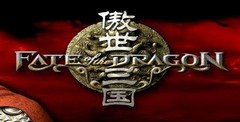
| a game by | Overmax Studio |
| Platform: | PC (2001) |
| Editor Rating: | 7/10, based on 1 review, 3 reviews are shown |
| User Rating: | 8.4/10 - 18 votes |
| Rate this game: | |
| See also: | Best RTS Games, Dragon Games |
Charles Dickens, William Shakespeare, Daniel Defoe - names that every British school child holds dear, and whose rip-roaring tales of love, life and derring-do in these sceptred isles never fail to hold teary-eyed readers spellbound... Well maybe they don't have quite that effect, but at least you've heard of them. Now what if I said to you - Luo Guanzhong. Then you'd look at me blankly or say bless you. But you might say, "Ah yes, Luo Guanzhong, the famous 14th-century novelist, author of The Three Kingdoms." Which would tell me you either went to school in China or you're one of those irritating gits who knows everything and always wins at Trivial Pursuit.
Thanks to Eidos however, the venerable Luo is about to become, if not a household name, at least a little better known outside his native land. It is his historical novel about the fall of the Han dynasty in the 2nd century and the subsequent division of China into three separate kingdoms that forms the basis of this real-time strategy game. To add to the authenticity the game itself is also a product of that vast and ancient nation, having been developed by Chinese team Object Software.
Deja Vu
The blurb that comes with the game tells you that you must take up the mantle of one of the three warlords of the time, Cao Cao, Lui Bei and Sun Quan. By using guile and cunning, or failing that, outright brutality, you must lead your third of China on a mission to bring the other two kingdoms under your wing and rebuild the shattered nation. Great, you're thinking as you eagerly open the box while simultaneously phoning for a number 23, a 54, and some prawn crackers on the side. The evocative intro sequence, depicting the three generals battling it out on the plains of China only seeks to get you even more in the mood for something a little different and then...
At this point you might be forgiven for checking that you haven't put one of your old games in the CD drive by mistake. For by now a rather alarming sense of ddjd vu will be creeping over you. Hang on, haven't I played this somewhere before?
Indeed you have, because Three Kingdoms: Fate of the Dragon bears an uncanny resemblance to Age Of Empires. We're not just talking a passing graphical likeness here; great swathes of gameplay have also been liberally lifted from Ensemble's masterpiece, especially the style of settlement building and resource management.
Saving Graces
Having made my point - Three Kingdoms is more of a tribute band than it is the next Abba -I won't dwell on it any further. Let's turn instead to some of the more original touches that Object Software has implemented. The first of these becomes apparent in the way you use your non-combatant population in the game. While it is necessary to build up a sizeable force of workers to gather resources, build new structures and turn raw materials into more useful ones, they can also be pressed into active service. By sending members of your population to a barracks you can train them up as sergeants and thereby begin to build your military force. Where this dual-use scenario really comes in handy is during times of peace. Instead of having your army standing about idly and consuming all your hard-earned resources, you can put them back to work as humble builders and gatherers. Then, when things start hotting up again, you can retrain them as soldiers at a fraction of the original time and cost.
Some thought has also gone into the art of war. Your soldiers march on their stomachs and need to be kept fed and watered if you want them to perform at their peak. While they are garrisoned in a friendly town they have free access to food and wine, as long as you have some stockpiled, and will stay on top form. However, as soon as they start traipsing about in the wilderness they will begin to decline. Keep them hungry and thirsty for long enough and they will degrade to the point that they look about as dedicated and confident as England going into another World Cup.
Fortunately you can offset disaster with a bit of forward planning. By equipping your army wifh one or more supply wagons, you can set up staging camps en route to the site of your intended conquest and these help to keep your force in good shape.
A Siege My Liege?
Provided you spare enough resources for some research you can also build a variety of siege equipment, and fortunately each city in the game has a pre-made gate and walls to avoid disappointment. After all, there's nothing worse than dragging a siege ladder halfway across the country only to find that the inconsiderate sods haven't even bothered building a wall in the first place. However, whether you scale the walls or just tear down the gates, every combat situation tends to deteriorate quickly into a bit of an unstructured brawl.
Three Kingdoms employs an unusual two-map system, which is more akin to some older RPGs like the Ultima series than most RTS games. Each city has its own detailed map, which is where most of the construction and resource-management activity goes on. There is also a 'wilderness' map at a cruder scale in which cities are represented by buildings. You control units in exactly the same way in both maps, but just switch between the two as necessary. No doubt Object Software had sound reasons for arranging things this way rather than having the customary single-world map, but I have to confess I found it rather annoying having to switch repeatedly between the wilderness map and the various city maps in the game.
It's great to see some original product coming out of China, and hopefully we'll see a lot more of it in future. But I have to be honest and say that Three Kingdoms didn't quite do it for me. If you haven't played any of the Age Of Empires series extensively and the Chinese scenario sounds like your bag then you will definitely get many hours of pleasure out of this product, but sadly a classic it is not.
Download Fate of the Dragon

System requirements:
- PC compatible
- Operating systems: Windows 10/Windows 8/Windows 7/2000/Vista/WinXP
Game Reviews
It's Christmas time, there's no need to be afraid. At Christmas time, we let in light and banish shade. Bah barrh, haowthumm. Bah baarh, haowthumm. (Well, you try translating the sound of a didgeridoo.) Do they know it's Christmas time at all? Waaah, wah waah wah... (Enough! - Ed.)
Well, indeed it is Christmas time, and whether the starving masses of Africa know it or not, those of us that forage for a living in this godforsaken country certainly do. Driven into our brains from late September, with festive bunting displayed in shop windows earlier and earlier every year, you can hardly get through an autumn day without being reminded that the anniversary of baby Jesus' birth is just around the corner. At least this year we've had a bit of rain to take our minds off the horror that is almost upon us.
Beyond which lies the New Year, that extra-special time when lots of people top themselves for whatever reason, while the rest of us live through the next few months paying off the last few. Christmas - happy; New Year - sad.
Which is why the Chinese sensibly moved their New Year celebrations to February - to give themselves a couple of months to pay off their credit card bills before going hell for leather at the next party. After all, you'll notice they can afford to put on magnificent street parades, run around in dragon outfits, set off fireworks and bang all sorts of pots and pans, while we just get pissed and flock like lemmings to Trafalgar Square. Hey, do we know how to pardy, or what?
Let's Party Like It's...
Unlike most other games around at this time of year, Fate Of The Dragon isn't being rushed out for a Christmas release, not that that would be a problem. Out now in its native China, the game that the rest of the world will be getting is effectively complete, save for the small matter of translating the local lingo into something we would recognise as English.
However, on the evidence of what we at PC were sent halfway across the world to see, they are almost there. With Persy Zhang, producer at Beijing-based Overmax Studios, looking over our shoulder, we had no problems getting to grips with the game.
Taken through the impressive opening sequence that sets the story for Three Kingdoms, we were immediately thrown into the first mission. At first glance - as you may have already noticed yourself -Fate Of The Dragon has more than a passing resemblance to another empire-building, real-time strategy game you may know, Age Of Empires.
Similar to Microsoft's saving grace, Fate Of The Dragon concerns itself at its most basic level with collecting resources (wood, iron, food - rice, and drink - wine), which can be cashed in for currency to help build up your city until you eventually take over the country. However, unlike Age Of Empires' spread of world-renowned tribes, Fate Of The Kingdoms concerns itself with just three, each headed by a warlord - Cao Cao, Liu Bei and Sun Quan. They lend the game a diverse and authentic flavour, culled as they are from Chinese history and myth.
Added to those are more than 300 character generals who come into play later on and have a profound effect on gameplay. They edge the game towards familiar RPG territory to the point where, unlike in AOE where those you control are simply a cluster of animated sprites, here the main characters have a rich background and a repertoire of skills that you must make use of if you are to get through to the later stages.
The Peasants Are Revolting
Rather than drip-feed us a series of maps across which we must build and expand, Overmax has instead given us a head start. It's important to remember that while Empires is about technological advancement, Kingdoms' aims are less to do with building up an infrastructure and more about conquest in a purer sense.
The cities are already in place, and across any one map there may be any number of settlements. Far from making the levels colossal however, each city occupies what you might call a sub-level. Leave the safe haven of your city walls and you'll find your forces switch to the main map, across which you can raid and pillage until finding the enemy stronghold.
Different, too, is the dynamic way in which your population is handled. Rather than treat civilians separately from military units, in Three Kingdoms they are one and the same.
If you need to your army, you have to take your peasants from the field and send them to soldier school. Once their job is done, they can effectively be demobbed and put back in the employ of the land. Similarly, your stables can't chum out cavalry units if there are no soldiers to ride the horses. And if all your villagers are out fighting, who will be left to till the fields and tread grapes to make wine for sacrifice?
It's small differences such as these that makes Three Kingdoms far more than a simple Age Of Empires tribute. While the economic side of the game is certainly more involving than Age's, the military side lacks the finer tactical edge - a factor publisher Eidos is all too well aware of, and as we speak troop formations are being added into the game. And there's no time to be lost, for Eidos is aiming for a UK release before the Chinese New Year - which, as we are nearing the end of the Year of the Dragon, seems fair enough (Fate Of The Pig doesn't have quite the same ambience).
Overview
With the death of the Emperor Xian, the Eastern Han dynasty has collapsed. Unable to persevere in the face of deceased leadership, three great generals rise to take control of the fractious realm. Will you take the part of Sun Quan, a mighty leader who will one day earn the title of ‘Emperor Great’? Or would you become Liu Bei, the descendent of an ancient Emperor, destined to fight Sun Quan until an ultimate threat unites them against the enemies of China? Last, there is the powerful Cao Cao, the first King of Wei, a strong, united kingdom, a great leader in his own right, and perhaps the most likely person to lead the Three Kingdoms as Emperor.
Fate of the Dragon is a semi-historical real-time strategy title, newly released from Eidos Interactive. A cheap take on some of the more important events of 150-250 AD, Fate of the Dragon is an Age of Empires style game with a significant amount of historical pumped into its cheery little code. You’ve got three different roles to play in the single player campaign, each with slightly different campaigns and unit styles. Assisting you in this adventure is a helpful little in-game tutorial, which actually goes a long way in helping you understand the more complicated aspects of this game. Fate of the Dragon throws in a few mystical elements, with the ability to research magical spells, and doesn’t take too many pains in throwing too many historical elements at you.
Gameplay, Controls, Interface
Essentially a real-time strategy title, with some small micromanagement features thrown in for good measure, Fate of the Dragon is easily compared to Age of Empires, another RTS. Essentially duplicating Age of Empires, down to some of the iconography, Fate of the Dragon offers features for town building, harvesting resources, upgrading technology, and unit production for combat purposes.
Your troops are all ridiculously easy to control, as long as you understand that actions are issued with the right mouse button instead of the left. Your city centers around a Ceremonial Arch which produces your villagers, and your villagers harvest resources and create the buildings that form the core of your city. These buildings usually serve one or two purposes, and many of them are present purely to harvest resources. You'll be able to create farms, markets, and technology centers.
After you've created villagers and the suitable buildings, you'll be able to train them, turning a villager into a soldier. Your villagers can man a workshop, building the various siege engines that allow you to attack another city. To keep everything simple and easy to reference, there are actually two different maps that you use during each mission. One map is your city, containing your units, buildings, and many of your resources; the other being an area map that shows the territory you occupy, so you can send your units to distant places from the relative safety of your city. Functionally, the two maps are the same and you can march units from the country into your city (represented with a large 'city' structure on the territory map), who then show up on your city map.
One unique feature of this title is the large amount of micromanagement it takes to operate. Each villager needs to be tasked to gather resources, work in the workshop, plant crops on the farm, or feed pigs at a pig sty. You'll be given heroes who can fill positions in your military leadership, serving as your advisor in a particular matter, such as national security.
Multiplayer
Fate of the Dragon supports up to eight players over a LAN or Internet connection and runs reasonably well using either. Given that the gameplay is identical to playing one of the single player campaigns and the interface for setting up the multiplayer game is easy to use, I’d say that this ranks as one of Fate of the Dragon’s better qualities.
Graphics & Audio
Fate of the Dragon, for a 2D real time strategy game, looks fairly good. Aside from high color units and buildings, you'll find intricate, detailed structures, accurate scenery, and good character animations. The only drawback is the tendency for flicker when using the mouse cursor. When using certain features, the mouse cursor moves to the upper right hand corner of the screen and flickers very rapidly, in a very annoying way. Also, the main menu art and design were created very poorly, with the pictures of the three rules displaying at a very low resolution.
Unfortunately, like most games today, there is little noteworthy in the Fate of the Dragon soundtrack or effects.
System Requirements
Windows 95/98/Me, PII 200mhz, 32MB RAM, 320MB HD Space, 4x CD-ROM Drive, 16MB Video Card, and a DirectX 7.0 Compatible Sound Card.
Bottom Line
Fate of the Dragon is little more than a sophisticated Age of Empires clone with slightly better art. The only thing original in this title is the extra little micro-management features that let you keep a tight reign on your growing civilization. With a weak historical storyline and little in the way of good looking graphics, Fate of the Dragon is another RTS I’d be quick to shelve. Perhaps worth it for a select few who are very interested in Chinese history, the relatively dry nature of this material makes it far from worth it.
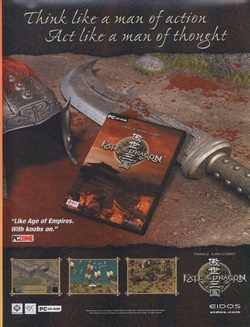
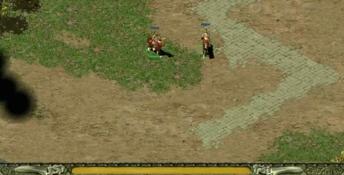
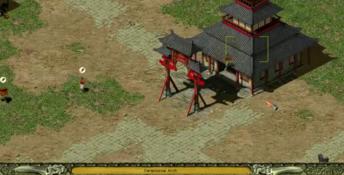
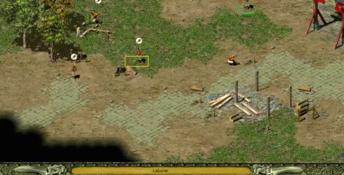
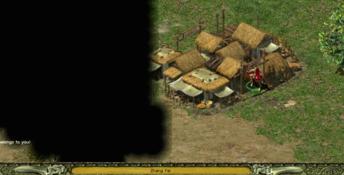
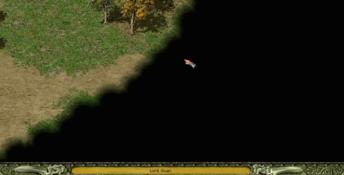


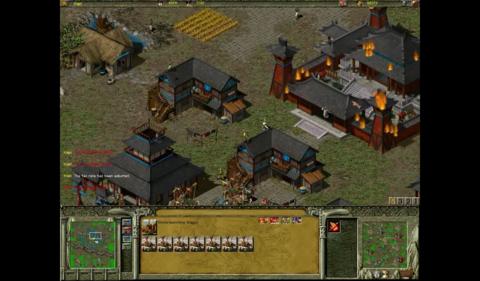



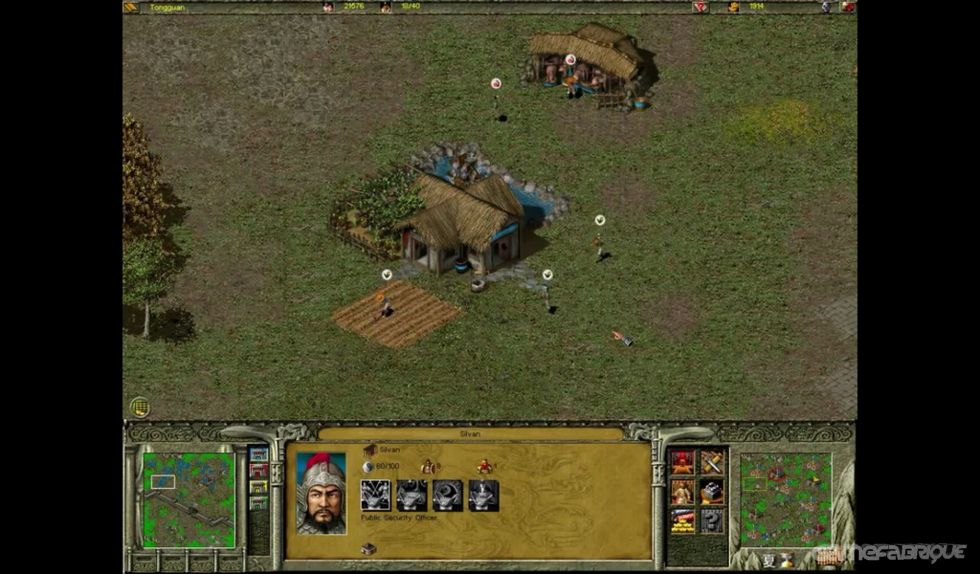




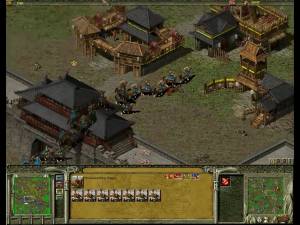


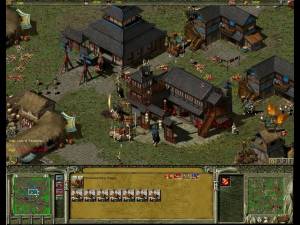

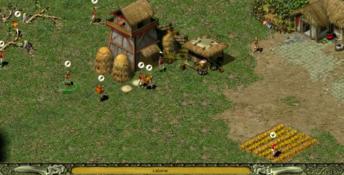
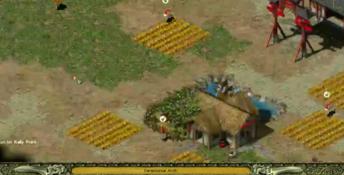
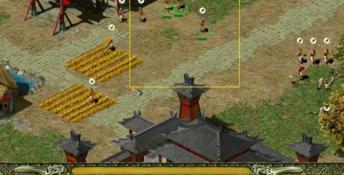
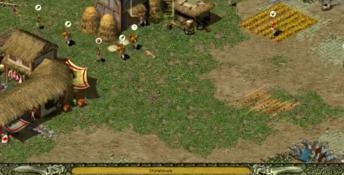
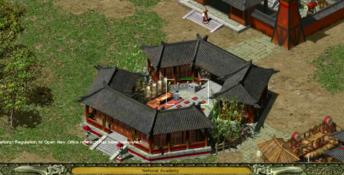

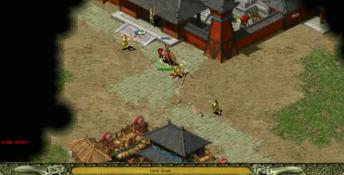
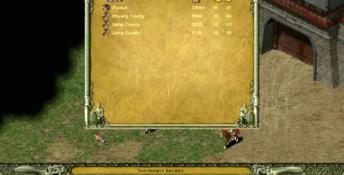
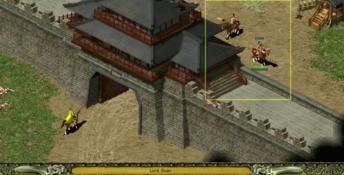

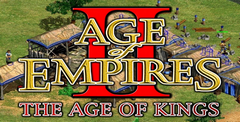 Age of Empires II: Age of Kings
Age of Empires II: Age of Kings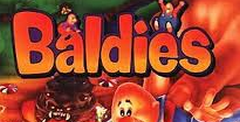 Baldies
Baldies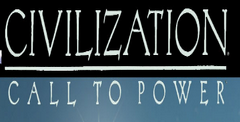 Civilization: Call to Power
Civilization: Call to Power
 Desperados: Wanted Dead or Alive
Desperados: Wanted Dead or Alive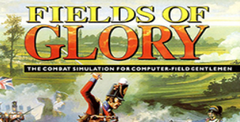 Fields Of Glory
Fields Of Glory
 Star Wars Rebellion
Star Wars Rebellion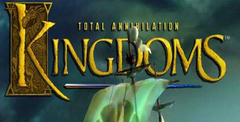 Total Annihilation: Kingdoms
Total Annihilation: Kingdoms
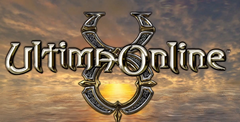 Ultima Online
Ultima Online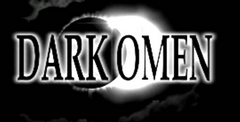 Warhammer: Dark Omen
Warhammer: Dark Omen
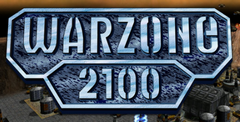 Warzone 2100
Warzone 2100